Lists
by Emily B., March 8, 2022 9:02 AM
March is Women's History Month. It's a time for commemoration, reflection, and a recommitment to the struggle for women's rights. This year brings mixed blessings. Title IX celebrates 50 years while reproductive rights face challenges across the country. We can look back and honor all of the women who have fought for the rights we now enjoy, but we can also look around and see all of the ways in which the gains have not been applied equally and we can see how far we have still to go.
We wanted to take this time to take a look at the multitudinous issues that fall under the umbrella of women's rights. This list is by no means exhaustive, but we hope you find this list empowering and as inspiration for learning about the modern women's rights movement.
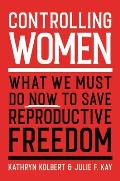 Controlling Women: What We Must Do Now to Save Reproductive Freedom
by Kathryn Kolbert and Julie F. Kay
Controlling Women: What We Must Do Now to Save Reproductive Freedom
by Kathryn Kolbert and Julie F. Kay
With reproductive freedom under attack across the country and facing evisceration in the supreme court, it is imperative to learn about the legal battles that have been fought over the past 50 years and to understand what is at stake. More than an introduction to the history of reproductive rights, Korbert and Kay lay out strategies for the coming struggle. Now is not the time for complacency.
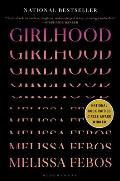 Girlhood
by Melissa Febos
Girlhood
by Melissa Febos
Using the pain of her own coming-of-age, Febos investigates the misogynistic constraints and expectations that warp female adolescence. For anyone who has experienced girlhood, reading Febos is a potent, cathartic, brutal, and ultimately uplifting experience. By excavating the damage, she offers a new language for talking about and unlearning the trauma inflicted on girls during those formative years.
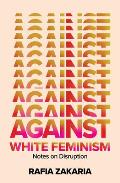 Against White Feminism: Notes on Disruption
by Rafia Zakaria
Against White Feminism: Notes on Disruption
by Rafia Zakaria
Zakaria addresses the legacy of a feminism whose power structure has long benefited white women at the expense of all other women and at the expense of a more fulsome feminism capable of addressing the impacts of systemic racism. Against the backdrop of centuries of examples and personal stories, she builds an irrefutable case for dismantling white feminism to make room for a more inclusive, intersectional feminism that allows for a solidarity that is more than lip-service.
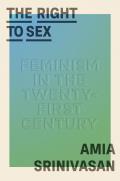 The Right to Sex: Feminism in the Twenty-First Century
by Amia Srinivasan
The Right to Sex: Feminism in the Twenty-First Century
by Amia Srinivasan
Srinivasan's essays offer few clear answers, but many questions and provocations. Whether she is writing about consent, the politics of desire, carceral feminism, pornography, or sex work, her lucid, complex, sometimes contradictory, but always powerful writing forces the reader to dissect their own beliefs and examine old issues from new angles. The Right to Sex is a timely collection and an excellent jumping-off point for examining many of the issues central to the future of feminism.
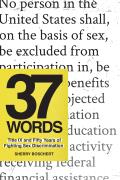 37 Words: Title IX and Fifty Years of Fighting Sex Discrimination
by Sherry Boschert
37 Words: Title IX and Fifty Years of Fighting Sex Discrimination
by Sherry Boschert
The first 37 words of Title IX read, "No person in the United States shall, on the basis of sex, be excluded from participation in, be denied the benefits of, or be subjected to discrimination under any education program or activity receiving federal financial assistance." In honor of its 50th anniversary, Boschert's 37 Words is a gripping history of the legislation, a celebration of the organizers who fought for the law, a celebration of those who benefited from the law, and a reckoning with how unequal those gains have been. This is the story of how far we have come in 50 years and how maddeningly far we have still to go.
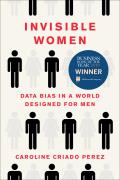 Invisible Women: Data Bias in a World Designed for Men
by Caroline Criado Perez
Invisible Women: Data Bias in a World Designed for Men
by Caroline Criado Perez
Data — big data, metadata, algorithmic data, predictive data, medical data — is increasingly inescapable. It controls the search results, ads, and news you see; it has insidious impacts on the workplace, the home, and even medical care; and it is highly male-biased, specifically white cis-male biased. Perez lays out the damning evidence along with badly needed solutions. As long as Silicon Valley controls our lives through data, this will be required reading.
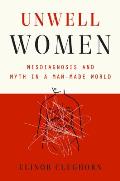 Unwell Women: Misdiagnosis and Myth in a Man-Made World
by Elinor Cleghorn
Unwell Women: Misdiagnosis and Myth in a Man-Made World
by Elinor Cleghorn
The extent to which gender-bias impacts women's ability to receive accurate medical diagnoses or treatment and the extent to which illnesses attributed to "women's issues" are understudied or written off entirely is frankly infuriating. The additional biases that make it even less likely for some women — Black and Brown women, trans women, poor women, fat women, disabled women, and neurodivergent women included — to receive adequate treatment is doubly so. In Unwell Women, Cleghorn draws on her own experience with misdiagnosis to tell the story of women's health from Ancient Greece to the modern day (spoiler alert: not nearly enough has changed). The depth of malpractice she covers is vast and her tone is the epitome of righteous anger. This is an important book for any woman who has ever struggled to get a proper diagnosis or treatment and for anyone in the medical profession. Non-biased healthcare should be a human right.
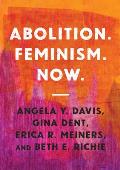 Abolition. Feminism. Now.
by Angela Y. Davis, Gina Dent, Erica R. Meiners, and Beth Richie
Abolition. Feminism. Now.
by Angela Y. Davis, Gina Dent, Erica R. Meiners, and Beth Richie
Feminism and the struggle for women's rights does not exist in a vacuum. In this new work, a veritable who's who of brilliant activists and scholars argue that feminism must join forces with abolitionism in the struggle to end the carceral state. They highlight the community builders, activists, and organizers already fighting for an abolitionist feminism. This is a map for a more just future.
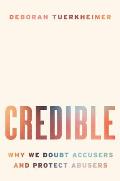 Credible: Why We Doubt Accusers and Protect Abusers
by Deborah Tuerkheimer
Credible: Why We Doubt Accusers and Protect Abusers
by Deborah Tuerkheimer
#MeToo brought a reckoning, but we still live in a society with wildly warped perceptions. Victims of sexual crimes who come forward are still more likely to be dismissed than victims of other categories of crimes and victims are even less likely to be believed if they come from marginalized backgrounds. While we live in a society that, rightly, is supposed to assume the prosecuted are innocent until proven guilty, our societal biases uphold a system that rarely allows perpetrators of sexual crimes to be held to account or allows their victims to receive adequate protection. In Credible, Tuerkheimer, a former prosecutor, examines those biases and offers a path towards justice.
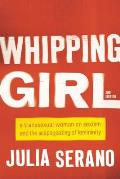 Whipping Girl: A Transsexual Woman on Sexism and the Scapegoating of Femininity
by Julia Serano
Whipping Girl: A Transsexual Woman on Sexism and the Scapegoating of Femininity
by Julia Serano
Whipping Girl was originally published in 2007, and it is still one of the best in-depth explorations of transmisogyny, feminism, and gender theory. Of the 2016 second edition, writer and activist Jennifer Baumgardner says, "It's official: Whipping Girl is a 21st century feminist classic. It's also a gift to a culture (still) struggling to face its own misogyny. Serano's writing is clear, gracious, and incredibly illuminating."
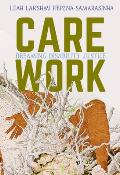 Care Work: Dreaming Disability Justice
by Leah Lakshmi Piepzna-Samarasinha
Care Work: Dreaming Disability Justice
by Leah Lakshmi Piepzna-Samarasinha
A true feminism that fights for the rights of all women must be intersectional and center the experiences of women experiencing multiple forms of oppression. Leah Lakshmi Piepzna-Samarasinha brilliantly explores what collective liberation that doesn't leave Black, Brown, and queer disabled people behind might look like. Her activism is joyful, resilient, and collective. Read this for a glimpse of everything that feminism could be.
÷ ÷ ÷
For more recommendations and bookseller displays, check out our Women's History Month resource page.
|